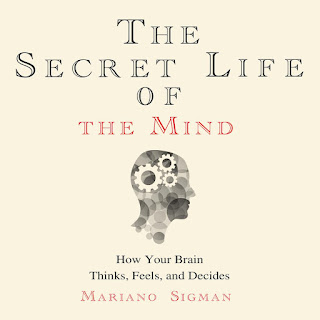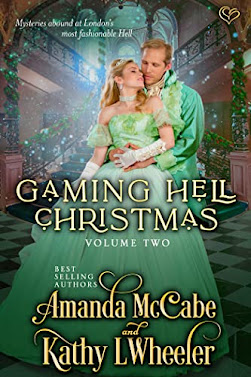Baen Books, October 2017
Poul Anderson began writing his own "future history" in the 1950s, with its starting point being that there would be a limited nuclear war at some point in the 1950s. From that point would develop a secret effort to build a new social structure that could permanently prevent war. This project was founded on a new discipline of human and social psychology, and a secret organization within the UN, secretly manipulating people and events, including the occasional assassination.
You might think these people are the bad guys, but Anderson intended them to be the good guys, building a human civilization of freedom, prosperity, individual freedom, and no more war. Nuclear weapons meant war could never be allowed to happen again. If you've looked at photographs and films from Hiroshima and Nagasaki, including interviews with the survivors, it should be clear why. So Anderson has his initially tiny cadre of people studying the mathematics of the new science of the human mind, who work first to ensure militaristic dictatorship doesn't become an acceptable form of government for UN members, and then to have enough influence to ensure all the countries stay on track and the UN develops toward being a true world government.
One of the interesting features of this story sequence is the Un-Men, the UN's top, and top secret, agents, who undertake all the most dangerous missions to thwart the efforts of nationalists and authoritarians in various countries, including the US, to weaken the UN, strengthen national governments, and bring back the ability of national governments to pursue their view of national interests, even if it means invading and conquering their neighbors. Two things go into making these Un-Men the super-agents that they are. One is superior mental and physical training grounded in the ever-advancing science of the human mind, related to the science that also enables the Psychotechnic Institute to project and manage the future development of human civilization in the direction they want. (It's worth noting that the Psychotechnic Institute is officially independent of the UN, lessening its direct power, but providing a level deniability on both ends.)
The other thing is that one very exceptional man, extremely intelligent, strong, and adventurous, never chose to enlist in the program, but was eventually cloned. The clones emerge identical to the original, not just physically and in some important aspects of temperament and personality, but in every way, except for particular scars that one individual got and another didn't. And this is true to the point that, when necessary, one Un-Man can impersonate another well enough to fool even his wife, in even the most intimate circumstances. This is of course impossible because nurture and life experience does play a role in how we turn out. But in the 1950s, who knew? We were still decades away from cloning Dolly the sheep. The superior science of the mind resulting in more effective education for those to whom it is extended, I'm totally willing to believe as a potential reality. The completely identical Un-Men? That's something I go with for the sake of the story.
Another interesting feature is the story set on Venus. You might argue with the politics of it, and Anderson in his later years certainly did. But this Venus is not the verdant jungle of other sf of this period. It's oppressively hot still, but dry, barren, and uninhabitable in its current state. It's not the real Venus we know now, but it's a lot more realistic than most sf and popular imagination portrayed at the time. The now-independent and unified colonies on Venus are working on terraforming it. But to do so, the colony has become extremely collectivist and top-down, with little to now personal freedom and an ever-present secret police. This is something the 1950s Anderson didn't approve of, the 1990s disapproved of even more, and no one who remembers the USSR, or Mao's China, or other such regimes, would volunteer to live in. Anderson and his protagonist in this story do both concede, and I agree, that some degree of collectivization is necessary to the project they're undertaking. This much, though, stems from the greed and power-hunger of those in charge.
It's also noted that the Venusian political bosses are making use of the as much of the same science the Psychotechnic Institute is using to remake Earth to their vision, and using it quite effectively. And that right there is one of the things I've always loved about Anderson--that ability and willingness to see that there's more than one side, even when he's coming down firmly on one particular side.
Another thing I love is that the characters are interesting, complex, and realistic. People are individuals, not stereotypes or stick figures. There aren't many women in these stories, but the ones that are here, and play significant roles, are also intelligent, resilient, and interesting, as well as varied in their interests and goals. The ones that are more in the background? They look and sound more like what we find conventional 1950s fiction. The basic social roles seem similar. But the ones who are significant characters are real people, without being portrayed as freakish in their own setting.
The stories weren't written in any particular order, but in 2017, Baen gathered them into three volumes, presenting them in internal chronological order, and providing an introduction and interstitial material reframing these stories as the alternate history they became when we didn't have a nuclear war by the end of the 1950s. The stories in this volume range from shortly after the nuclear war, starting with one of the early experts in the new science of human behavior confronting a valued old friend, to try to dissuade him from unfortunately short-term goals, which would result in more war and death in the longer run.
I haven't talked much about the individual stories. They're good stories, and I enjoyed them, but what struck me most deeply in rereading these, is the overall impact, and experience of reading these 1950s stories in the 2020s. Still very good stories, but as different as my politics are from Anderson's in his later years, I agree with him about the weaknesses here. The Venus story isn't the only one where the potential danger of the Psychotechnic Institute's psychometric science is acknowledged, and yes, I think it's a greater danger than the younger Anderson recognized at the time.
And yet these are still very good stories, and I enjoyed them.
Recommended.
I received this book as a gift, and am reviewing it voluntarily.














